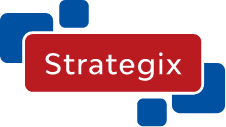Common dismissal cases at the CCMA are on the grounds of, “unauthorised use of company property for private purposes unrelated to work,” and “willful disobedience relating to gross abuse of company property and/or equipment.”
The facts of these cases are usually excessive use of company internet for frequently using email facilities for personal communication purposes, or for surfing ‘undesirable’ or pornographic sites during work hours.
The question now arises, is the interception and investigation of email communication lines (which have the company’s name at the end of every email) and internet use a breach of the employees’ right to privacy? Or does the company have a right to monitor employee behaviour on the internet to protect their good name and reputation due to an employee’s undesirable actions?
The answer to this question is spread amongst the Constitution of the Republic of South Africa Act 200 of 1993, and the Interception and Monitoring Prohibition Act of 1992. Both need to be interpreted by the courts to apply these laws to the workplace.
The right to privacy is what mainly protects the employee in this case, however in a Constitutional Court judgement of the Bernstein case, found that the limitation to the right to privacy is that it is not absolute, and is relative to the rights accruing to another individual. Additionally, the right to privacy extends only to the aspects of a person’s life of which it is a legitimate expectation that society considers objectively reasonable. As a person moves further into the public realm, the more their right to privacy is limited.
South Africa has also passed legislation such as RICA, POPI, and the ECT Act in an attempt to standardise the interception of electronic communications in the workplace. However, concerning RICA, there is still some uncertainty and debate. It has been concluded that there is no direct legislative framework for privacy concerns in the workplace, making it difficult to determine whether the rights of the employer or employee are more important.
The minority of cases where the clash of interests between the employer and employee, that have been considered by the Court ruled that employees have minimal right to privacy when it comes to electronic communications in the workplace and that employers may intercept communication lines without or with consent from the employee.
It must be noted that the privacy rights of the employee are not completely dismissable; the courts have ruled that the employer must still use objective discretion and care when intercepting communication lines. In particular, the manner of interception and whether or not the employer could have used less restrictive methods when acquiring the information.
The extent of the legitimate expectations of privacy of the employee is based on the operational requirements and circumstances of the business in question. Nonetheless, an employer is still entitled to monitor and intercept electronic communications without an electronic policy and the employee’s knowledge.
Recent improvements on Power BI (Business Intelligence), enables clients to monitor and protect user beaviours on sensitive data in real-time, incompassing session monitoring, risj remediation using Microsoft Cloud App Security and send alerts.
In addition, Power BI is used to empower security administrators using Microsoft Cloud App Security to improve organisational oversight through data protection reports and security investigation capabilities.
When Power BI content is exported, governance policies are enforced, ensuring that data is protected at all times, even if the content is being exported to a Microsoft App. The last improvement is the classification and labelling of sensitive Power BI data, through the use of familiar Microsoft Information Protection sensitivity labels employed in Office.
Go from data to insights in minutes with STRATEGIX and Power BI.






